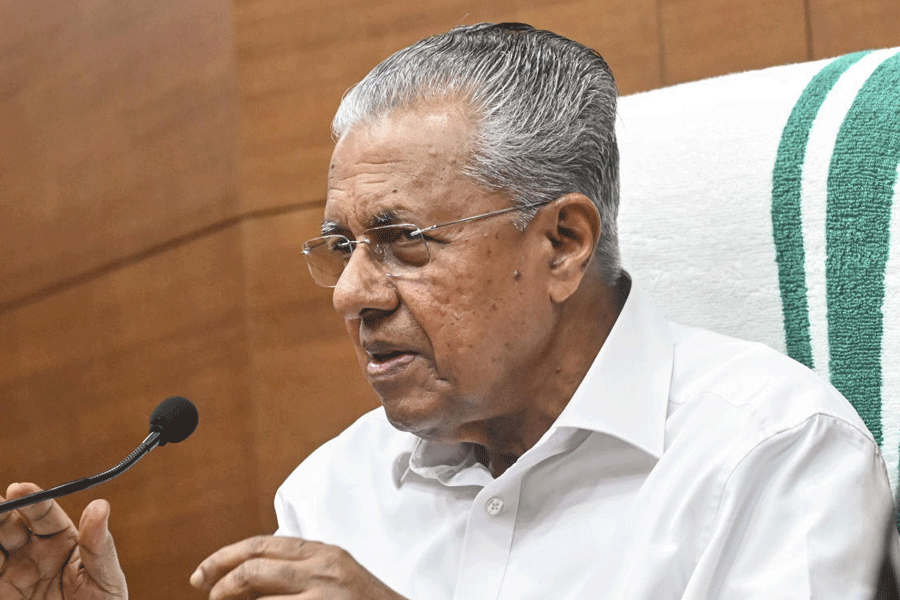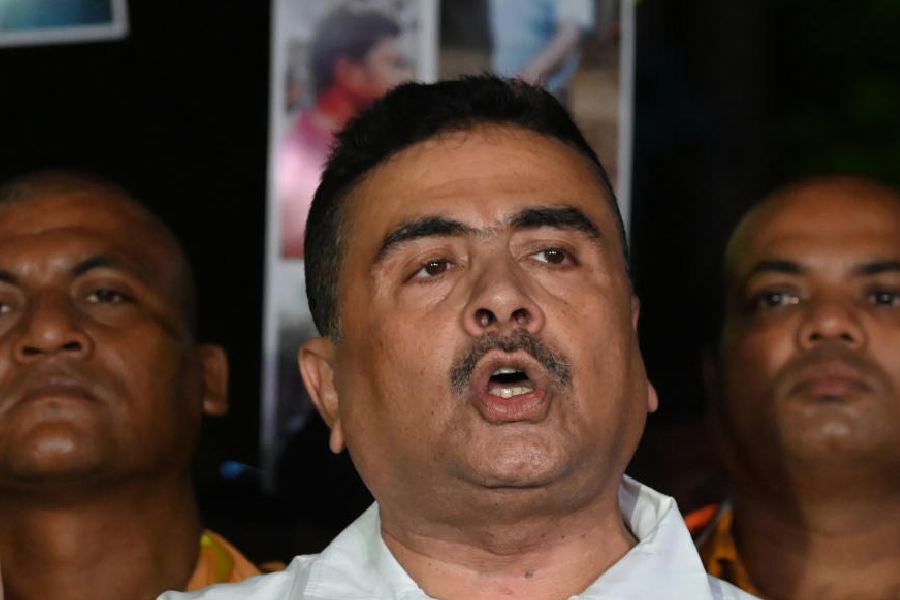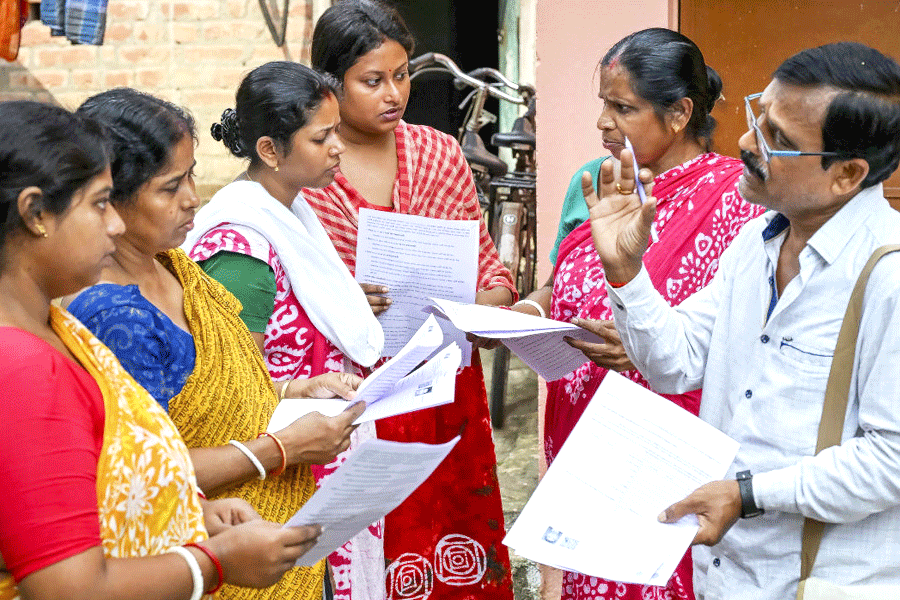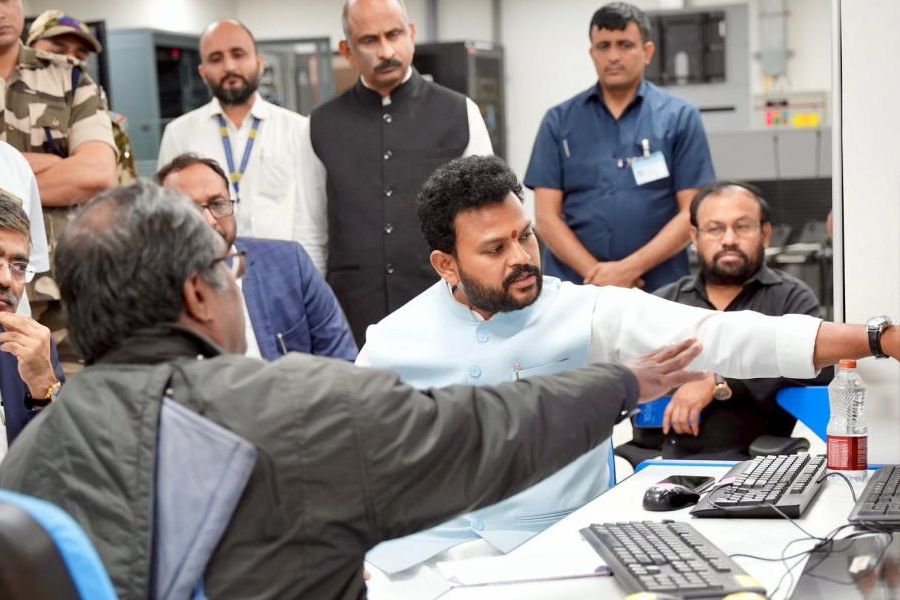 |
Kohima, April 6: Music has long been one of the preferred campaign tools of politicians. Now voters are using the same medium to drive home the message that the politicians they support invariably let them down.
Konyak Nagas of Chenloishu village in Nagaland’s Mon district gave a unique spin to the Aoleang Mo festival last week by substituting traditional songs with Nagamese compositions lampooning their political leaders.
“Tuensang-Mon ke diya sanction kut jaishe?” sang a troupe of four youths at the village, alluding to the money that was sanctioned for the two districts but never released.
Mon is a truly backward area and the roads — even the highways — in the district are in various stages of disrepair.
Congress Lok Sabha candidate Asungba Sangtam listened carefully, but understandably did not comment on the song, which asked whether the sanctioned money was lost somewhere along the way to Mon and Tuensang.
A schoolteacher sang a similar song at a government function in the state capital today, advising politicians to be wary of the electorate. “Politics te matha bhanga khan Aoleang te bhaal koribi...(those who are drunk on politics have a chance to recover on Aoleang),” he sang.
Fourteen ministers of the Democratic Alliance of Nagaland government, including chief minister Neiphiu Rio, laughed sportingly. Sangtam had been invited to inaugurate the celebration of Aoleang at Chenloishu village several months ago. In the interregnum, his former Congress colleague Wangyuh Konyak was fielded against him by the ruling coalition.
The villagers were confused because Wangyuh hails from the area and had been elected to the Assembly on a Congress ticket.
On the first day of the festival, the village youths welcomed Sangtam with a hint of sarcasm. “Honourable MP, thank you for coming to a place considered inaccessible,” they sang.
Composer W. Sheiching said election time was the most opportune period to ask politicians “what they have done or not done for the people”. The lyrics of the songs impressed most people.
“We enjoyed the music. The songs hit the bull’s eye,” college student P. Chingku said.











